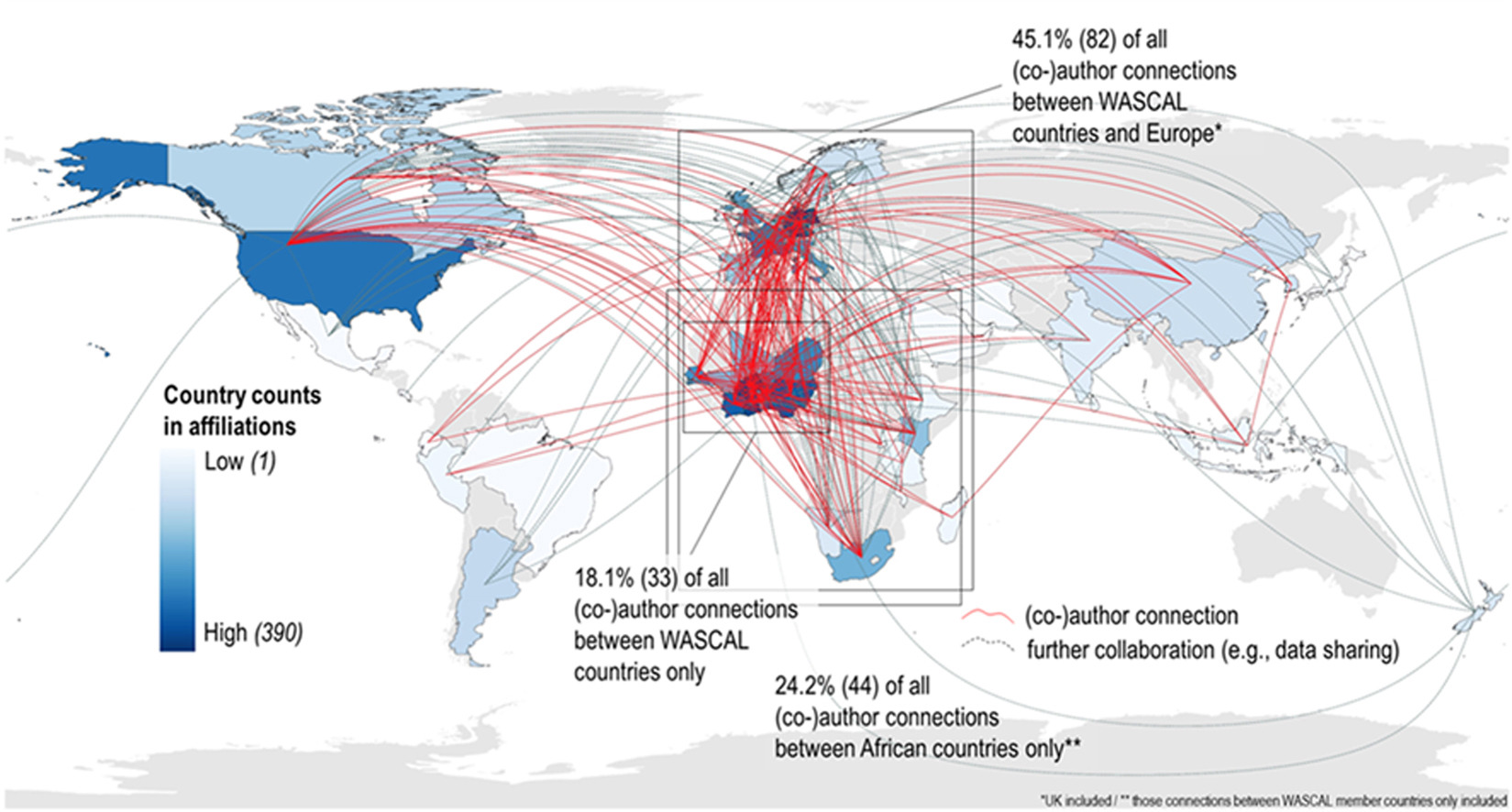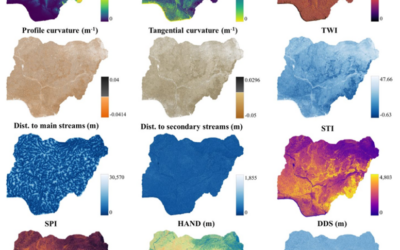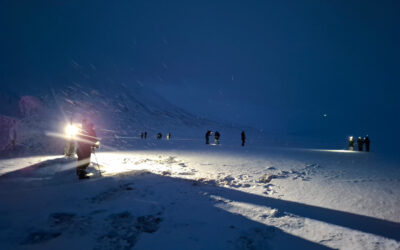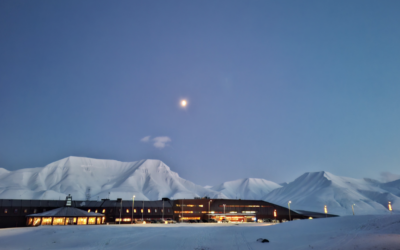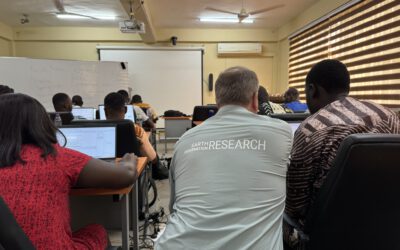Our colleagues Sarah Schönbrodt-Stitt and Michael Thiel, together with partners from University of Halle-Wittenberg, University of Bonn and WASCAL, published a new article. Climate change poses significant challenges to Africa, particularly West Africa, where vulnerabilities to climate extremes are high. To address these challenges, the West African Science Service Centre on Climate Change and Adapted Land Use (WASCAL) was established in 2012 with funding from Germany’s Federal Ministry of Education and Research (BMBF). Over the past decade, WASCAL has emerged as a leading institution in climate research and capacity building in the region. This study provides a comprehensive review of WASCAL’s scientific output and impact from 2012 to 2022.
Key Achievements
- Scientific Publications: WASCAL has produced 315 peer-reviewed scientific papers published in 149 journals, with 57.8% of them being open access. These papers have been cited over 8,000 times, reflecting their global relevance.
- Collaborations: WASCAL has fostered partnerships with researchers from 58 countries, with strong ties between Africa and Europe. Within West Africa, Burkina Faso, Ghana, and Nigeria were the most represented countries in terms of co-authorship.
- Capacity Building: More than 500 students have graduated from WASCAL’s Graduate Studies Program, hosted by 12 West African universities in collaboration with German institutions.
Research Focus
WASCAL’s research primarily addresses climate-related challenges, with key areas including:
- Climate Modeling: Development of high-resolution regional climate models to assess impacts on agriculture, water resources, and energy.
- Environmental Studies: The majority of publications focus on ecological and environmental sciences, followed by meteorology and agriculture.
- Underrepresented Areas: Social sciences, food security, urban planning, and health-related research (e.g., tropical medicine and parasitology) remain underexplored, highlighting opportunities for future focus.
Challenges and Opportunities
While WASCAL has made significant strides, the study identifies areas for improvement:
- Open Access: Although the share of open-access publications has increased, accessibility remains limited for many papers, which can hinder knowledge sharing in the Global South.
- Inclusivity: Countries like Gambia, Mali, and Togo are underrepresented in research collaborations, suggesting the need for broader regional engagement.
- Emerging Topics: Strengthening research in food security, urban planning, and health can better address the multifaceted impacts of climate change.
Conclusion
WASCAL’s decade-long journey demonstrates the power of international collaboration in tackling climate challenges. By expanding its research focus and fostering inclusivity, WASCAL can further contribute to achieving the United Nations Sustainable Development Goals (SDGs), particularly those related to poverty, hunger, climate action, and life on land.
This study serves as a model for evaluating the scientific output and impact of research institutions, offering valuable insights for future climate initiatives in Africa and beyond.
The full link to the article: https://www.sciencedirect.com/science/article/pii/S2211464525001496

